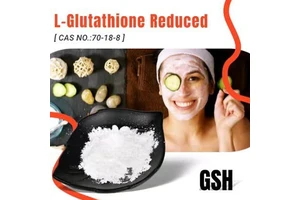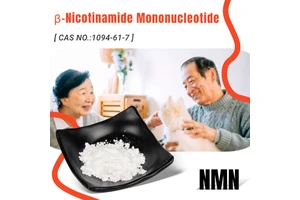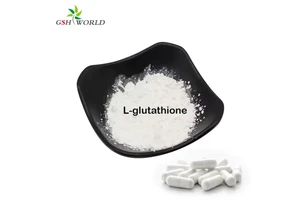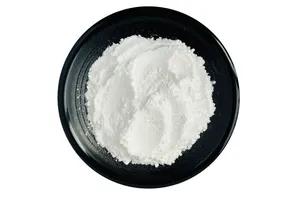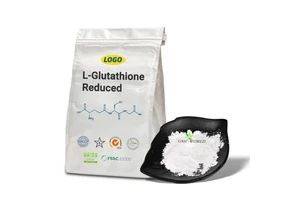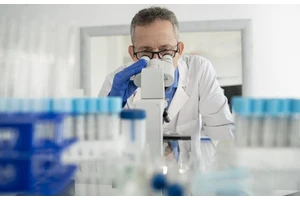What is glutathione?
Glutathione is a tripeptide composed of three amino acids: L-glutamic acid, glycine and L-cysteine.
Glutathione is widely present in animals, plants and microorganisms and is one of the most important non-protein thiol compounds in living organisms.
Hopkins first discovered glutathione in 1921. The reduced form (GSH) and the oxidized form (GSSG) are the two forms of glutathione that exist in cells, and they can be interconverted through glutathione reductase and NADPH.
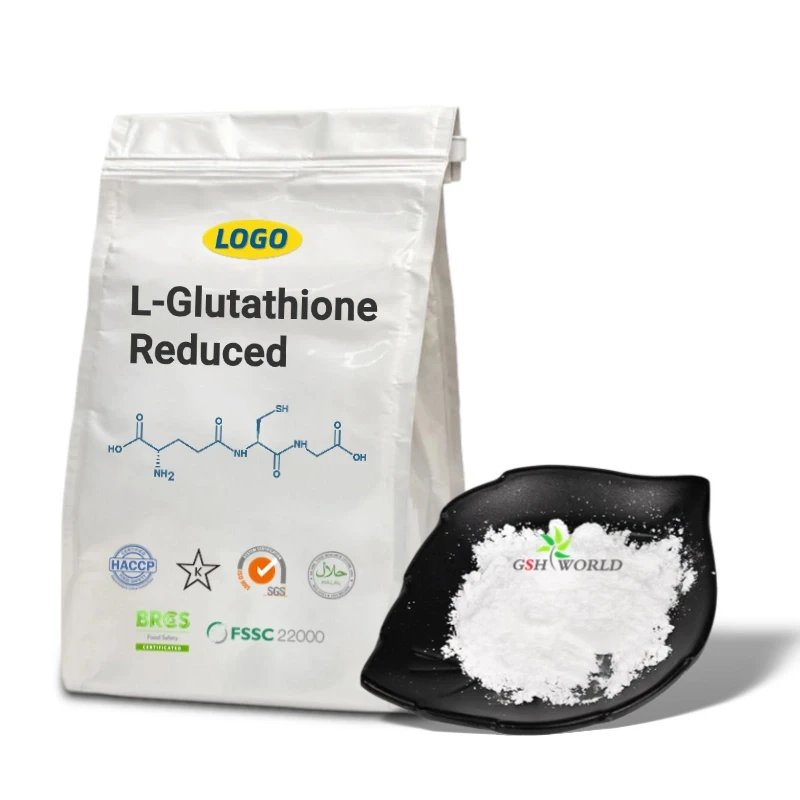
The glutathione that people refer to is usually reduced glutathione (GSH), which mainly plays roles such as participating in REDOX reactions within cells and serves as a coenzyme for certain enzymes.
Glutathione mainly exists in yeast, animal liver, muscle and blood in nature.
The content of glutathione in human red blood cells is relatively high, approximately 70mg per 100 red blood cells.
Glutathione is also contained in a certain amount in many plants, such as vegetables, beans, grains, tubers, mushrooms, etc.
What are benefits of glutathione?
1. Antioxidant
Glutathione is ubiquitous in the human body and acts as a natural reducing agent. It is easily oxidized into GSSG, thereby protecting other substances from oxidation. It is the main "killer" of free radicals in the human body.
Free radicals are a type of unstable molecules that may cause damage to cells and tissues. Glutathione helps maintain the structure and function of cells by capturing free radicals.
Protect the thiol groups in the protein from oxidation, repair the damaged thiol groups in the protein, and restore the active function of the protein.
Glutathione can also regenerate other antioxidants such as vitamin C and vitamin E, further enhancing the antioxidant capacity of cells.
2. Detoxification
Glutathione has a certain detoxification effect on poisoning caused by carcinogens such as CO, heavy metals, organic solvents, and epoxides, and can combine with them and be excreted from the body.
It plays a protective role against leukopenia and other conditions caused by radiation, radiation drugs or anti-tumor drugs;
It can combine with various carcinogens and exert detoxification effects through liver metabolism, such as aflatoxin, etc.
3. Protect liver
Glutathione also plays an important role in the treatment of liver diseases.
The liver, as an important metabolic organ in the body, is vulnerable to oxidative stress.
Studies have shown that patients with liver diseases often have an increased state of oxidative stress, leading to cell damage and disease progression.
The antioxidant effect of glutathione can help alleviate oxidative stress, protect liver cells from further damage, and promote liver repair and regeneration.
Its antioxidant effect also helps to reduce lipid peroxidation, inhibit inflammatory responses and fibrotic processes related to oxidative stress.
Therefore, glutathione is often used to treat diseases such as alcoholism, liver cirrhosis, hepatitis and fatty liver.
Long-term use of glutathione can inhibit the formation of alcoholic fatty liver disease.
4. Anti-aging
Glutathione has the function of promoting cell regeneration and repair, and can delay the aging of skin cells, thereby achieving an anti-aging effect.
Glutathione can also inhibit the formation of melanin, reduce the appearance of pigmentation and wrinkles, and keep the skin youthful.
5. Prevent cardiovascular diseases
Glutathione can reduce the levels of cholesterol and triglycerides, thereby improving cardiovascular health.
This helps prevent the occurrence of cardiovascular diseases, such as coronary atherosclerotic heart disease and acute myocardial infarction.
Which groups of people are recommended to supplement glutathione?
- 1. Patients with acute and chronic liver diseases, especially those with drug-induced liver injury, alcoholism, fatty liver and other diseases;
- 2. Beauty-conscious people with anti-aging needs;
- 3. People who often engage in outdoor activities and are exposed to the sun;
- 4. People who want to boost their metabolism;
- 5. People with weakened immunity.
Which foods are rich in glutathione?
Asparagus is the food with the highest glutathione content among fruits and vegetables. The glutathione content of fresh asparagus is 260-400 milligrams per kilogram.
Freshly slaughtered cattle muscle contains 250-750 milligrams per kilogram, and frozen cattle muscle contains 175 milligrams per kilogram.
List foods rich in glutamic acid: tomatoes, cheese, mushrooms, beans;
Foods rich in L-cysteine mainly come from animals:
Foods rich in high-quality protein such as fish, pork, seafood, shrimp, offal, wheat germ, oats, etc.
Foods rich in glycine are extremely common. Most high-protein foods contain:
Fish, meat, beans and dairy products, etc.
Glycine and glutamic acid, the amino acids that respectively belong to sweet and umami flavors, have always been present in high proportions in various processed seasonings in daily life, such as soy sauce, black pepper sauce, stock seasonings, and so on.
Among the three materials of glutathione, only L-cysteine is relatively difficult to obtain in sufficient amounts in the diet.
It is also believed by the World Health Organization that infants and young children may consume insufficient amino acids.
GSHWORLD Summary
As an antioxidant, glutathione helps the body eliminate excessive free radicals, thus keeping our body healthy.
It can play the role of detoxification and antioxidation at the cellular level, reduce the damage of various factors to cells, and thus exert the effect of disease prevention and treatment.
After consuming foods containing GSH, GSH is broken down by digestive enzymes in the digestive tract into glutamic acid, cysteine and glycine. After absorption, GSH is resynthesized in the body.
The same common glutathione is easily decomposed by digestive enzymes when taken orally, and only a small amount is directly absorbed.


